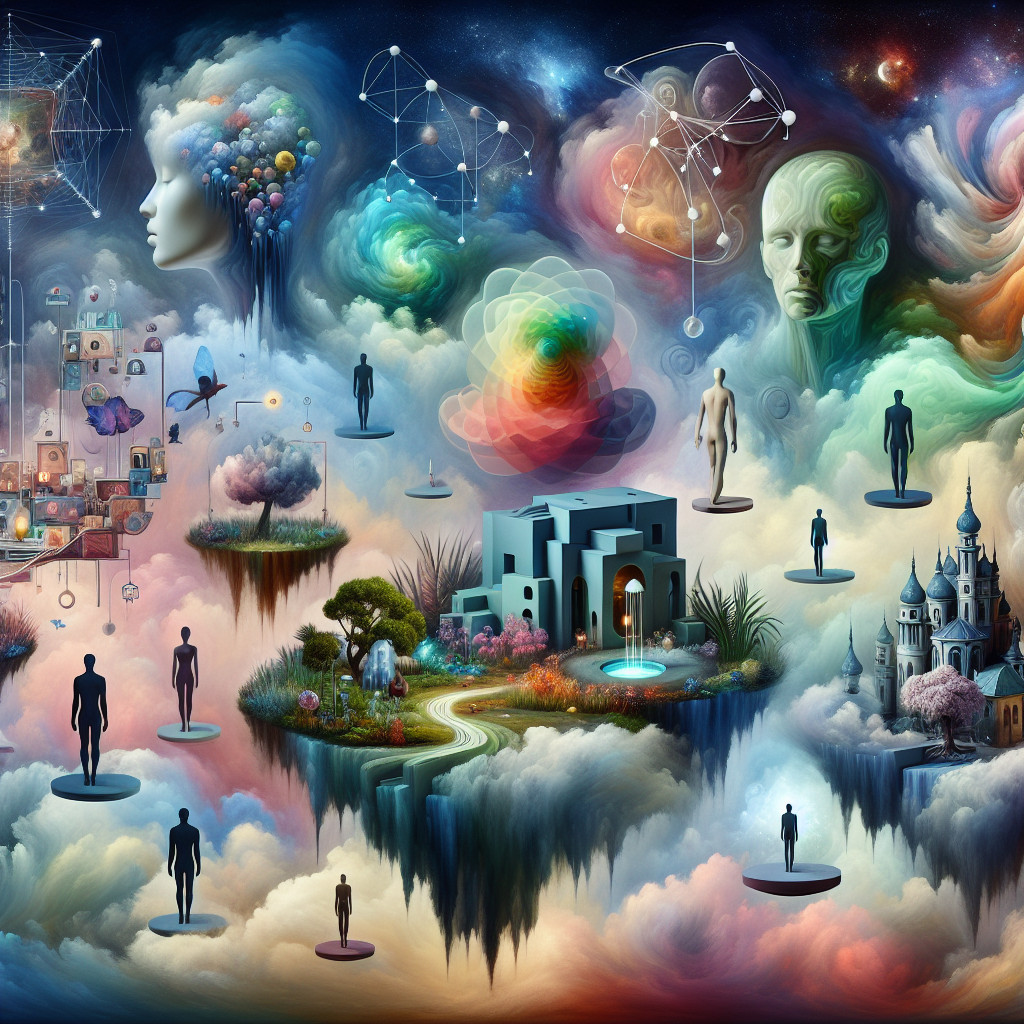Dreams are a fascinating and complex topic that has been studied for centuries. They can be vivid, strange, and sometimes even disturbing. One common dream experience is when someone calls you a dream. This phrase can have multiple meanings and interpretations, depending on the context and the person using it.
In some cases, being called a dream can be a compliment. It may mean that the person sees you as someone who is imaginative, creative, and has a lot of potential. They may admire your unique way of thinking and your ability to come up with new ideas. On the other hand, being called a dream can also have negative connotations. It may suggest that the person thinks you are unrealistic, impractical, or not grounded in reality.
The interpretation of being called a dream largely depends on the context of the situation and the relationship between the two people involved. It is important to consider the tone of voice, body language, and any other cues that may give insight into the meaning behind the phrase. In the following sections, we will explore the different interpretations of being called a dream and what it may mean for you.
Understanding Dreams and Their Significance
Dreams are a mysterious and fascinating part of human experience. They are the product of our subconscious minds and can reveal hidden thoughts, desires, and fears. In this section, I will explore the psychology of dreaming and common themes and symbolism found in dreams.
The Psychology of Dreaming
The study of dreams and their interpretation is known as dream analysis or dream interpretation. One of the most well-known figures in this field was Sigmund Freud, who believed that dreams are a reflection of our subconscious thoughts and desires. Freud argued that dreams have two types of content: manifest content, which is the literal content of the dream, and latent content, which is the hidden, symbolic meaning of the dream.
Another influential figure in the study of dreams was Carl Jung, who believed that dreams are a window into the collective unconscious, a shared reservoir of human experience and knowledge. Jung argued that dreams contain archetypes, universal symbols that represent aspects of the human psyche.
Common Themes and Symbolism
Dreams often contain common themes and symbolism that can help us understand their significance. For example, water can represent emotions, while animals can symbolize instincts. Interpreting these symbols can be key to unlocking the deeper meaning of your dreams.
One common theme in dreams is being chased or pursued. This can represent a fear or anxiety in waking life, such as feeling overwhelmed or threatened. Another common theme is falling, which can represent a loss of control or fear of failure.
In conclusion, dreams are a fascinating and complex part of human experience. Understanding their significance can help us better understand our subconscious thoughts and desires. By exploring the psychology of dreaming and common themes and symbolism found in dreams, we can gain insight into ourselves and our lives.
Interpreting the Phrase “You’re a Dream”
When someone calls you a dream, it can have different meanings depending on the context and perspective. In this section, I will explore the various interpretations of this phrase.
Romantic and Platonic Contexts
In romantic relationships, being called a dream can be a compliment that conveys admiration, affection, and desire for connection. It can mean that the person thinks you are perfect, beautiful, or amazing. It can also suggest that the person is attracted to you and wants to pursue a romantic relationship with you. In this context, being a dream can be a positive thing that enhances your self-esteem and confidence.
However, being called a dream in a platonic context can also be a compliment that reflects the person’s admiration, respect, and appreciation for your qualities, skills, or achievements. It can mean that the person thinks highly of you and values your friendship or professional relationship. In this context, being a dream can be a sign of mutual respect and recognition.
Cultural and Personal Perspectives
From a cultural perspective, dreams have been interpreted differently across cultures and throughout history. In some cultures, dreams are seen as a way to communicate with the gods or the spiritual realm. In others, dreams are viewed as a way to predict the future or gain insight into one’s destiny. Therefore, being called a dream can have different connotations depending on the cultural background of the person who says it.
From a personal perspective, being called a dream can also reflect the person’s subconscious desires, identity, and context. For example, if someone dreams about you, it can mean that they have a desire for connection, attention, or intimacy with you. If someone calls you a dream, it can mean that they see you as an idealized version of themselves or as a projection of their own desires. Therefore, it is important to consider the context and the person’s motives when interpreting this phrase.
In conclusion, being called a dream can have various interpretations depending on the context and perspective. It can be a compliment, a sign of admiration, or a reflection of the person’s subconscious desires. Therefore, it is important to communicate clearly and openly with the person who says it to avoid misunderstandings or misinterpretations.
Analyzing the Impact of Dreams on Real Life
Dreams are a mysterious and fascinating subject that have perplexed humans for centuries. Dreams can be interpreted in many ways and often carry great significance in our lives. In this section, I will explore the impact of dreams on real life.
Influence on Behavior and Emotions
Dreams can have a profound influence on our behavior and emotions. Dreams can help us process unresolved issues or fears that we may have. They can also provide guidance on personal growth and problem-solving. Dreams can even inspire creativity and provide opportunities for change.
For example, if you have been struggling with a particular issue in your life, your dreams may offer insight into how to resolve it. By analyzing your dreams, you may be able to identify patterns or themes that can help you understand your thoughts and emotions.
Dreams as a Reflection of Life
Dreams are often a reflection of our daily lives. They can be influenced by our experiences, fears, and desires. By analyzing our dreams, we can gain insight into our subconscious thoughts and emotions.
For example, if you have been experiencing a lot of stress in your life, your dreams may reflect this by featuring stressful situations or anxiety-inducing scenarios. By analyzing these dreams, you may be able to identify the root cause of your stress and take steps to reduce it.
Overall, dreams can have a significant impact on our lives. By analyzing our dreams, we can gain insight into our subconscious thoughts and emotions and use this knowledge to improve our lives.
Practical Aspects of Dream Interpretation
As someone who has been interested in dream interpretation for years, I have found that dreams can be a valuable tool for self-reflection and self-improvement. Here are some practical aspects of dream interpretation that can help you understand your dreams better:
When to Seek Professional Advice
If you have recurring dreams or nightmares that are causing you distress, it may be helpful to seek the advice of a dream analyst or therapist. They can help you interpret your dreams and provide guidance on how to work through any issues that may be causing negative dreams.
Self-Help and Improvement Through Dreams
Dream analysis can be a valuable tool for self-reflection and self-improvement. By paying attention to your dreams and analyzing their possible interpretations, you can gain insight into your subconscious mind and work through any issues that may be holding you back.
Some possible interpretations of common dream themes include:
- Negative dreams: These dreams may be a reflection of your fears or anxieties. By facing your fears in your dreams, you may be able to work through them in real life.
- Sex dreams: These dreams may be a reflection of your sexual desires or frustrations. They can also be symbolic of a need for intimacy or connection.
- Romantic dreams: These dreams may be a reflection of your desire for a romantic relationship, or they may be symbolic of a need for emotional connection.
- Flying dreams: These dreams may be symbolic of a desire for freedom or a need to escape from a situation.
It’s important to remember that dream symbolism can be highly personal, so it’s important to consider your own experiences and emotions when interpreting your dreams.
Frequently Asked Questions
Here are some frequently asked questions about dream interpretation:
- What is the dream process? The dream process is the way in which our brains create and process dreams during REM sleep.
- How can I validate my dream interpretations? Validation of dream interpretations can come from self-reflection, discussing your dreams with others, or seeking the advice of a professional dream analyst.
- What are some possible interpretations of recurring dreams? Recurring dreams may be a reflection of unresolved issues or emotions that need to be addressed.
- What is REM sleep? REM sleep is the stage of sleep during which most dreaming occurs.
- What is symbolic interpretation? Symbolic interpretation is the process of analyzing the symbolic meaning of objects, people, or situations in a dream.



